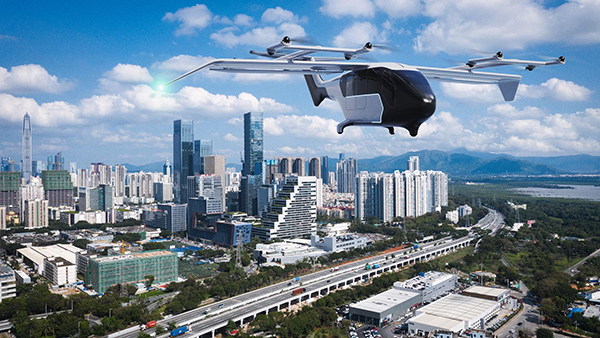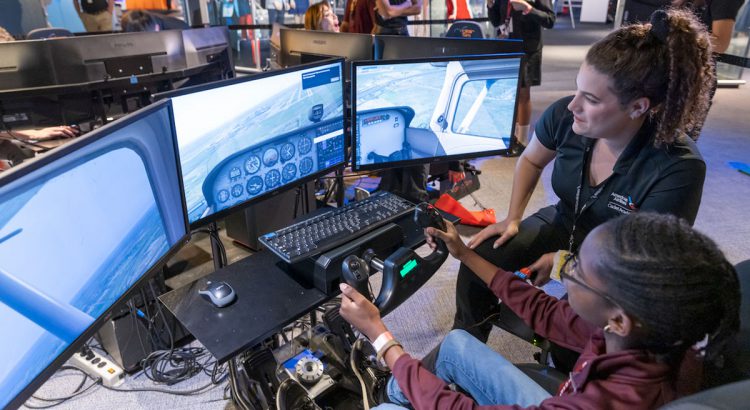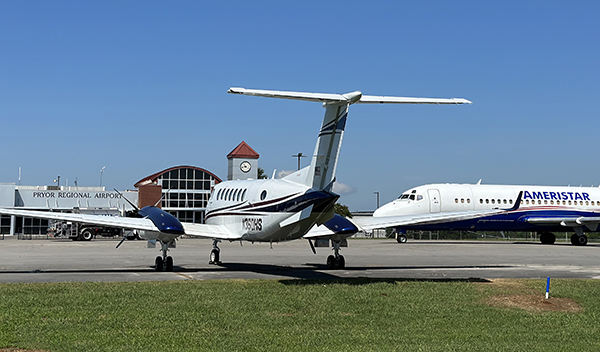Michigan Central and the Michigan Department of Transportation (MDOT) announced today the launch of Detroit’s Advanced Aerial Innovation Region – an initiative that will position the state as a leader in next-generation aerial mobility and drone technology by attracting startups, catalyzing new high-skill jobs, advancing policy, and driving commercialization and adoption of drone technology. As […]
Month: October 2023
UMILES Next Becomes Crisalion Mobility
Crisalion Mobility is the new name for UMILES Next, a Spanish leader in the design and development of advanced electric mobility solutions which are efficient, safe and sustainable. Crisalion Mobility has a pioneering dual commitment to electric ground and air mobility and develops innovative solutions for both passenger transport and freight logistics. The company boasts […]
Georgia DOT Seeks Aviation Technology Manager
On behalf of our client (Georgia Department of Transportation), applications are sought for the position of Aviation Technology Manager, for a long-term contract assignment working at their offices in Atlanta, GA. The primary duties of this position are to guide a state transportation program to advance air transportation related to Advanced Air Mobility (AAM) and […]
American Airlines and CR Smith Museum Launch AvEd Program Bridging the Classroom and Industry
Photo above – Students at the CR Smith Museum’s annual Aviation Career Day in 2022 were coached on flight simulators by students attending the American Airlines Cadet Academy. American Airlines and the CR Smith Museum are teaming up to introduce a new education program to inspire the next generation of aviation professionals. The multi-year Aviation […]
Sergeant Wigfall Honored as Hometown Hero at FAU Homecoming Game
The Boca Raton Airport Authority has partnered with Florida Atlantic University to celebrate the brave men and women who serve our country and local communities. As the official sponsor of the Hometown Heroes initiative, the Boca Raton Airport Authority stands in solidarity with these courageous individuals who have demonstrated unwavering dedication and have made profound […]
Large-Scale Study Using SAS Aircraft Concludes Biofuel Improves Air Quality
Bio-based aviation fuel reduces the number of ultrafine particles that are emitted from the aircraft engines, thereby improving air quality. This is one of the conclusions drawn from a large-scale international study using a SAS aircraft at Copenhagen Airport. Researchers measured an aircraft with 34 percent bio-based fuel (known as Sustainable Aviation Fuel, SAF), in […]
Crisalion Mobility appoints Manuel Heredia Ortiz as Managing Director
Crisalion Mobility announced the appointment of Manuel Heredia Ortiz as Managing Director. Heredia will oversee strategy and ensure Crisalion Mobility delivers on its corporate goals, identifying the resources needed to implement the company’s ambitious roadmap and assuming overall responsibility for the various business and market segments. Heredia holds a Degree in Industrial Engineering from Seville […]
Aviation Associations Applaud Senate Confirmation of Michael Whitaker as FAA Administrator
Aviation associations applauded the confirmation of Michael Whitaker as the next head of the Federal Aviation Administration. The U.S. Senate unanimously confirmed Whitaker – an attorney and private pilot – who will be returning to lead the agency where he served as deputy FAA administrator from 2013-2016. Whitaker currently serves as chief operating officer at […]
Pryor Field Regional Airport Expanding with New Taxiway and Access Road
Pryor Field Regional Airport (DCU) is growing yet again, with a new taxiway and access road underway on the northwest side of the airport. Pryor Field Regional Airport (DCU) in Tanner, Ala., broke ground this month on a concrete taxiway and access road that stems off of the existing parallel taxiway for Runway 18/36. This […]
NATA President and CEO Curt Castagna Steps in as Industry Co-Chair of EAGLE Initiative
Last week, the EAGLE (Eliminate Aviation Gasoline Lead Emissions) Initiative announced that NATA President and CEO Curt Castagna will serve as co-chair, alongside the Federal Aviation Administration’s (FAA) Executive Director of Aircraft Certification Services (AIR-1) Lirio Liu. Castagna is the second industry co-chair of the EAGLE Initiative–a collaborative effort between industry stakeholders and the FAA […]







